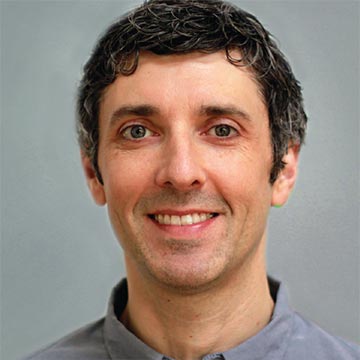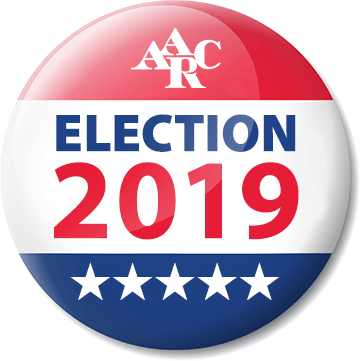Post-Acute Care Chair
Adam Mullaly, BSRT, RRT, AE-C
Bryn Mawr Hospital – Main Line Health
COPD Navigator
Member Since: 2007
AARC Activities:
- Post-Acute Care Section
Related Organizations:
- Pennsylvania Society for Respiratory Care – Research Collaborative
- American Lung Association – Better Breathers Club facilitator
Education:
- Pima Medical Institute, Bachelor of Science in Respiratory Therapy
- Canadore College, North Bay, Ontario, Canada, Respiratory Therapy
- BSRC, RRT, AE-C
Publications:
- Screening for sleep apnea in the perioperative setting: looking for the right compromise. Sparkle T, Sridhar S, Corso RM, Mullaly A, et al. Minerva Anestesiol 2016 Aug; 82(8):914-5.
- Assessing risk of obstructive sleep apnea by stop-bang questionnaire in an adult surgical population screened in the preoperative anesthesia clinic. Cattano D, Sridhar S, Cai C, Mullaly A, et al. Minerva Anestesiol 2016 May; 82(5):605-6.
- Multidisciplinary tracheostomy teams – a simple solution to an age old problem! Russell E Graham, Adam Mullaly, Susan Salazar, et al. 1 Respiratory Care, Memorial Hermann – Texas Medical Center, Houston, TX; 2 Speech Language Pathology, Memorial Hermann – Texas Medical Center, Houston, TX. AARC Congress 2015 Open Forum Abstract Presentation.
- Out of operating room advanced airway management – we can do this! Russell E Graham, Adam Mullaly, Tracy Green, et al. 1 Respiratory Care, Memorial Hermann – Texas Medical Center, Houston, TX; 2 Respiratory Care Services, Memorial Hermann – The Woodlands, The Woodlands, TX; 3 Anesthesiology, UT – Houston Medical School, Houston, TX. AARC Congress 2015 Open Forum Abstract Presentation.
- The ration of unplanned extubation to reintubation – is there a relationship? Russell E Graham, Adam Mullaly, Stanley Rhone, et al. 1 Respiratory Care, Memorial Hermann – Texas Medical Center, Houston, TX; 2 Pulmonary and Critical Care Medicine, UT -Houston Medical School, Houston, TX. AARC Congress 2015 Open Forum Abstract Presentation.
- Interdisciplinary tracheostomy assessment and follow-up team (TAFT). Ann Sparker, Jennifer Amos, Lisa Kainer, Adam Mullaly. Memorial Hermann Texas Medical Center, Houston, Texas. 2013 ASHA Poster Presentation.
- Rapid response revisited – a continued success story? Russell E Graham, Bob Herrington, Adam Mullaly, Stanley Rhone. Respiratory Care, Memorial Hermann – Texas Medical Center, Houston, TX 2010.
- Implementation of an advanced airway management training program within a multicenter health care system. Russell E Graham, Bobbie Melton, Joey Wilson, Adam Mullaly, et al. 1 Respiratory Care, Memorial Hermann – Texas Medical Center, Houston, TX; 2 Respiratory Care, Memorial Hermann – The Woodlands, The Woodlands, TX; 3 Anesthesiology, University of Texas – Houston, School of Medicine, Houston, TX 2009.
Elections Committee Questions:
What AARC or Chartered Affiliate offices/positions have you held where you feel you made a significant contribution to our profession? What is the contribution and how will you apply it to your new position, if elected?
These types of offices/positions have eluded me thus far in my career, I have primarily focused on professional growth with regard to skillset and leadership within the facilities I have worked. Although I have not held AARC or Chartered Affiliate offices/ positions, I have maintained a passionate and progressive outlook on Respiratory Care and will bring a fresh and energetic perspective to the Post-Acute Care Chair position.
What experience would you bring to the AARC to accomplish the goals set out by President Walsh?
Throughout my career, whenever an opportunity was presented that had the potential to enhance my skillset or advance my practice I went it for it; I understand the value of these opportunities, the importance of progression within our profession and the challenges we face as Respiratory Therapists. I will continue to advocate, collaborate, and promote advancing of our role with a focus on quality and safety elements.
I will use my communication and interpersonal skills to advocate and support the AARC efforts to advance respiratory therapy practice and help promote a license entry level to that of BSRT. Without the Bachelor’s degree we will continue to be “outsiders” in the health care environment relative to our allied health colleagues and the physicians we work with. It is critical that as Respiratory Therapists we understand the importance of advancing our credentials, not only to validate our expertise, but also to ensure the sustainability and progression of our profession.
What ideas do you have to attract non-members to join the AARC?
While I value everything the AARC offers, there are Respiratory Therapists out there who do not (for whatever reasons they have). I think we need to consider another membership tier at a discounted price, possibly calling this a “basic membership” that would not include free access to the Journal or AARC Times, webcasts, etc. (those would require additional fees to access). I think this is the type of membership that some RTs are looking for, a small fee that allows them to simply support and be a part of their professional organization.
With regard to social media, we need to have an Instagram account. I think the Facebook/Twitter posts are great in keeping people informed but not everyone uses Facebook or Twitter. Social media will continue to play an important role in allowing the AARC to communicate with its members.
What do you see is your role in being a member of the AARC Board of Directors and what specific issues that face the profession now would you see as something you’d like the AARC BOD to work on?
- Chronic Lung Disease Respiratory Therapist roles. We need to discuss these roles in depth and attempt to provide some standardization so we all remain on the “same page”; from what we are calling these new roles, to what these roles entail. It is imperative that we work in the same “silo”, share successes and collaborate to help ensure these roles are successful in showing RT value!
- Transition of care (hospital to home) and telemedicine care. As the AARC continues to advocate for change regarding credentialing, payment, and legal concerns, we as a group need to collaborate, share and research “outside of the box” ideas that can demonstrate RT value in this realm.
- The Post-Acute Care RT role. It is important that we establish more in-depth context on what RTs across the nation are doing for our patients Post-Acute Care, then collaborate and establish some evidence-based standards.







